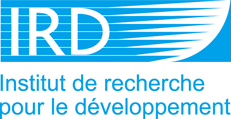Mercedes Pascual
Mercedes Pascual is a Professor in the Department of Ecology and Evolutionary Biology, and is affiliated with the Center for the Study of Complex Systems, at the University of Michigan. She is also an external faculty of the Santa Fe Institute. Dr. Pascual is a theoretical ecologist interested in the nonlinear population dynamics of infectious diseases, and their response to climate change and climate variability. She is also working on the structure and dynamics of food webs, the complex networks formed by species and their interactions in ecosystems. She received her Ph.D. degree in 1995 from the joint program of the Woods Hole Oceanographic Institution and the Massachusetts Institute of Technology. She was awarded a U.S. Department of Energy Alexander Hollaender Distinguished Postdoctoral Fellowship for studies at Princeton University. She received a Centennial Fellowships in the area of Global and Complex Systems awarded by the James S. McDonnell Foundation. She is also a fellow of the American Association for the Advancement of Science and has been recently appointed an investigator of the Howards Hughes Medical Institute.
Epidemic malaria and climate forcing: a population dynamics' perspective
Malaria epidemics in regions with seasonal windows of transmission can vary greatly in size from year to year. Epidemic or `unstable' malaria occurs in areas of marginal environmental conditions for the development of the parasite and the population dynamics of the mosquito vector, at the edge of the distribution of the disease. It is in these regions, where temperature or rainfall limit transmission, that climate variability and climate change have the potential to most strongly impact the population dynamics of the disease. I will present results on the significant influence of climate on malaria epidemics, for rainfall variability in desert regions of India and temperature trends in Kenyan highlands. Both studies rely on transmission models for the population dynamics of the disease.
If you wish to contact Mercedes Pascual, please click here




